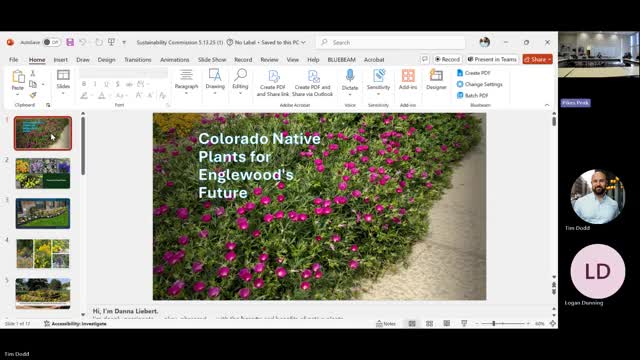Article not found
This article is no longer available. But don't worry—we've gathered other articles that discuss the same topic.

Commission hears city updates: Baird Park planting, communications subcommittee, All‑America City finalist; minutes approved

Presenter urges Englewood to expand native-plant landscaping; subcommittee outlines pilot certification and water-board outreach

